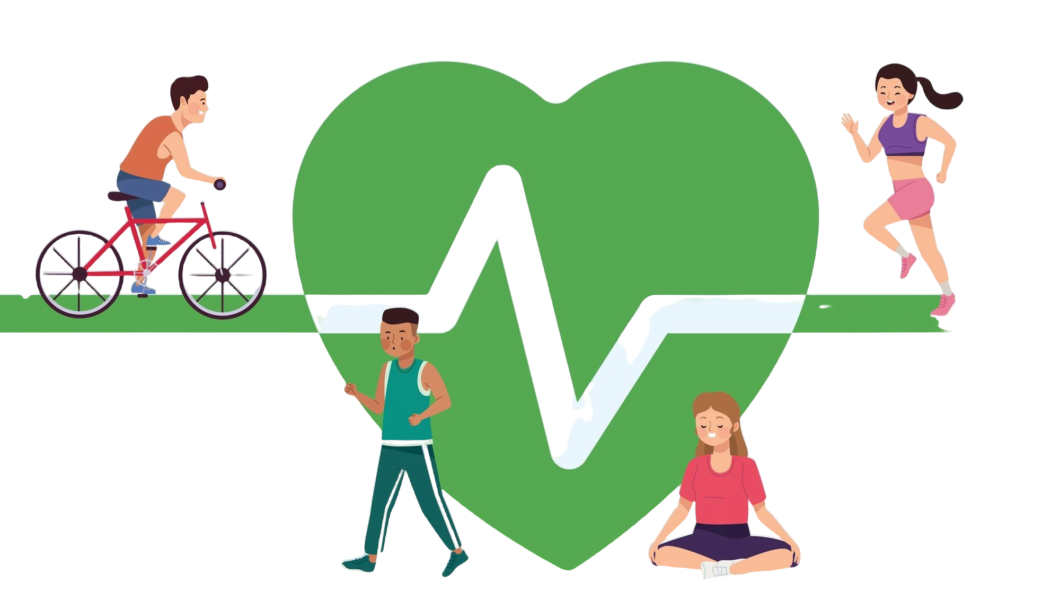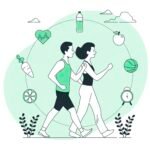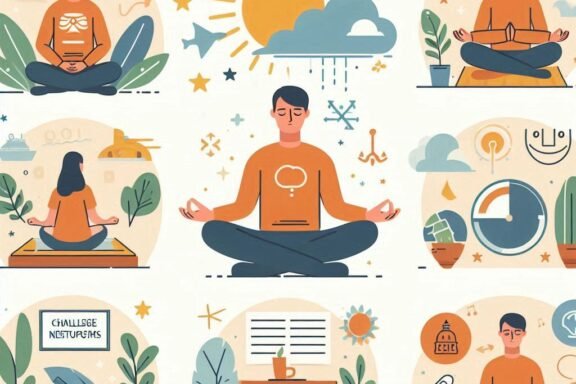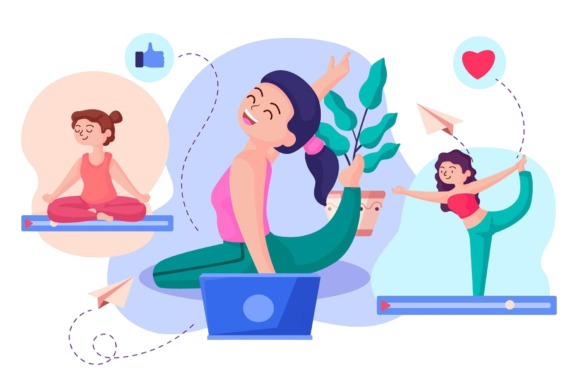Anxiety Relief Through Healthy Foods and Lifestyle Choices: A Holistic Approach to Well-being
In a world where stress and anxiety are becoming increasingly common, many of us find ourselves searching for effective ways to manage our mental health. While therapy, medication, and mindfulness practices are vital components in combating anxiety, one often-overlooked aspect is the role that nutrition and lifestyle choices play in anxiety relief. What we eat and how we live can significantly affect our mood, stress levels, and overall mental well-being.
By making mindful adjustments to both our diet and daily habits, we can enhance our emotional resilience and better cope with anxiety. This holistic approach to anxiety relief combines the benefits of healthy foods with intentional lifestyle changes that work together to promote lasting mental wellness.
In this blog, we’ll explore how certain foods and lifestyle choices can help reduce anxiety, boost mood, and improve your overall sense of well-being.
1. The Link Between Nutrition and Anxiety: How What You Eat Affects Your Mind
The food you eat doesn’t just fuel your body—it also affects your brain. A growing body of research has shown that certain nutrients play a crucial role in maintaining mental health and regulating mood disorders like anxiety. In fact, a poor diet or deficiencies in essential nutrients can contribute to increased feelings of stress, anxiety, and even depression.
For example, foods that are high in sugar and refined carbs can cause blood sugar spikes and crashes, leading to mood swings and irritability. On the other hand, whole foods that are rich in vitamins, minerals, and healthy fats can stabilize blood sugar levels, support brain function, and reduce symptoms of anxiety.
Key Nutrients for Anxiety Relief:
- Omega-3 Fatty Acids: Found in fatty fish like salmon, walnuts, and flaxseeds, omega-3s help reduce inflammation in the brain and can improve mood regulation.
- B Vitamins: B vitamins, particularly B6, B9 (folate), and B12, are essential for producing serotonin (a neurotransmitter responsible for mood regulation). Leafy greens, legumes, whole grains, and eggs are great sources of these vitamins.
- Magnesium: This mineral has been shown to have a calming effect on the nervous system. Magnesium-rich foods like spinach, almonds, and avocados can help reduce anxiety and promote relaxation.
- Vitamin D: Low levels of vitamin D are linked to anxiety and depression. Sun exposure and vitamin D-rich foods like eggs, fortified dairy products, and fatty fish can help maintain optimal levels.
- Probiotics: Research has revealed the connection between gut health and mental health, often referred to as the gut-brain axis. Probiotic-rich foods like yogurt, kefir, and fermented vegetables can support gut health, which in turn supports emotional balance and mental clarity.
By including these anxiety-reducing nutrients in your diet, you can help regulate your mood and reduce the physiological symptoms of anxiety.
2. Foods to Avoid: The Anxiety-Boosting Culprits
Just as certain foods can help relieve anxiety, others can contribute to heightened stress and emotional instability. Being mindful of what you avoid eating is just as important as incorporating anxiety-relieving foods into your diet.
Foods to Limit or Avoid:
- Caffeine: While a cup of coffee or tea can give you an energy boost, too much caffeine can increase heart rate, elevate blood pressure, and trigger anxiety symptoms. If you’re prone to anxiety, try limiting your caffeine intake or opting for herbal teas like chamomile or peppermint, which have calming properties.
- Refined Sugars: High-sugar foods, such as candies, sodas, and processed snacks, can cause blood sugar spikes followed by crashes, leading to irritability, fatigue, and increased anxiety. Opt for natural sweeteners like honey or stevia, or choose whole fruits for a healthier sugar boost.
- Processed Foods: Fast food, chips, and ready-to-eat meals are often packed with unhealthy fats, sodium, and artificial additives that can disrupt brain function and contribute to anxiety. Stick to fresh, whole foods that nourish both body and mind.
- Alcohol: While alcohol may initially seem to calm anxiety, it actually disrupts sleep patterns and can increase feelings of anxiety once its effects wear off. Limiting alcohol intake can help prevent anxiety from worsening over time.
Being mindful of what you put in your body is key to maintaining emotional balance. Choose nutrient-dense, whole foods that support your mental health while avoiding those that contribute to stress and anxiety.
3. Lifestyle Habits That Promote Anxiety Relief
While diet plays a significant role in managing anxiety, your overall lifestyle choices are equally important. A holistic approach to anxiety relief involves addressing various aspects of your life to create a balanced and calming routine.
Key Lifestyle Habits for Anxiety Relief:
- Regular Exercise: Exercise is one of the most effective natural remedies for anxiety. Physical activity helps release endorphins, the body’s natural mood boosters, while also reducing the levels of stress hormones like cortisol. Activities like walking, swimming, yoga, or strength training can all help alleviate anxiety and improve your mood. Aim for at least 30 minutes of moderate exercise most days of the week.
- Sleep Hygiene: Sleep deprivation can exacerbate anxiety, making it difficult for your body and mind to recover. Create a calming bedtime routine, avoid screens at least an hour before bed, and ensure your sleep environment is dark and quiet. Aim for 7-9 hours of restful sleep each night to help your body recharge and reduce anxiety.
- Mindfulness and Meditation: Practices like mindfulness and meditation are powerful tools for calming the mind and reducing anxiety. Mindfulness involves focusing on the present moment and being aware of your thoughts and feelings without judgment. Meditation helps activate the body’s relaxation response and can promote deep, restorative rest. Just 10-15 minutes of meditation a day can have a profound impact on anxiety levels.
- Deep Breathing Exercises: Anxiety often leads to shallow, rapid breathing, which can increase feelings of panic and stress. By practicing deep breathing exercises, you can activate your parasympathetic nervous system, which helps calm the body and mind. Try deep belly breathing, box breathing, or the 4-7-8 technique to regulate your breath and soothe anxiety.
- Limit Screen Time: Excessive screen time, especially on social media, can contribute to feelings of anxiety and stress. The constant barrage of information and comparison can leave you feeling overwhelmed. Set boundaries on your device use, and consider taking regular breaks to disconnect and focus on offline activities.
Creating a routine that incorporates physical activity, mindfulness, quality sleep, and stress-reduction practices can help you build resilience against anxiety and improve your overall well-being.
4. The Power of Connection: Social Support and Relationships
Human connection is a powerful antidote to anxiety. Having a strong support system of friends, family, and loved ones can help reduce feelings of isolation and provide a sense of safety and comfort during stressful times.
How Social Connections Help:
- Sharing your feelings: Talking about your anxieties with a trusted friend or therapist can lighten your emotional load and help you process difficult emotions.
- Social engagement: Participating in social activities that bring you joy and fulfillment can serve as a great distraction from anxious thoughts and help improve your mood.
- Physical touch: Hugging, holding hands, or cuddling with a loved one can release oxytocin, a hormone that promotes feelings of trust, security, and relaxation.
Fostering positive relationships and staying connected with others can significantly reduce anxiety and enhance your overall emotional health.
5. Mind-Body Practices: Yoga and Tai Chi for Anxiety Relief
Mind-body practices such as yoga and tai chi are excellent for reducing anxiety. These gentle, mindful movements combine physical postures with controlled breathing, helping to relax the body and calm the mind.
Benefits of Yoga and Tai Chi:
- Relaxation: Both yoga and tai chi help reduce muscle tension, slow the heart rate, and lower blood pressure, all of which can ease the symptoms of anxiety.
- Mindfulness: These practices promote mindfulness by encouraging you to focus on the present moment, which helps quiet the mind and reduce racing thoughts.
- Emotional balance: Yoga, in particular, has been shown to balance the nervous system, improve mood, and reduce symptoms of anxiety and depression.
Adding yoga or tai chi to your weekly routine can be an incredibly effective way to manage anxiety and improve overall well-being.
Conclusion: A Holistic Approach to Anxiety Relief
Anxiety doesn’t have to be something you simply live with. By making conscious choices about what you eat, how you move, and the lifestyle habits you cultivate, you can significantly reduce anxiety and improve your mental health.
A combination of anxiety-relieving foods, such as those rich in omega-3s, magnesium, and B vitamins, along with healthy lifestyle practices like exercise, mindfulness, and quality sleep, can provide powerful tools for managing stress and anxiety. Social support, relaxation techniques, and practices like yoga can further enhance your ability to find balance and peace.
Remember, there is no one-size-fits-all solution for anxiety, but by taking a holistic approach and prioritizing self-care, you can create a foundation of wellness that helps you thrive mentally, emotionally, and physically.







No Comments